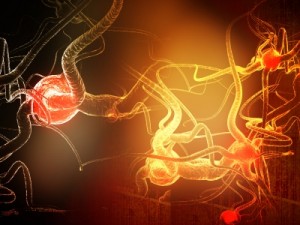People often mix up irritable bowel syndrome (IBS) and inflammatory bowel disease (IBD) in speech, but really they are quite different. Although IBS and IBD both cause similar symptoms- stomachaches, nausea- only one is a gastrointestinal disease that can be severely debilitating and life-threatening.
Irritable bowel syndrome (IBS)
Other terms include spastic colon, irritable colon, mucous colitis, or spastic colitis.
About one out of every six people experience irritable bowel syndrome (IBS), a condition that causes abdominal pain and cramping, in addition to abnormal bowel movements.
IBS may occur as a result of an infection in the intestines, or it may be caused by stress. There are no tests to diagnose IBS, rather several diagnostic procedures to rule out IBD, colon cancer, or celiac disease.
Also see: Crohn’s- 9 Irritable Bowel Disease (IBD) Myths to Ignore
Symptoms of IBS:
People with irritable bowel syndrome suffer from the following symptoms at least three times per month, for at least three months:
- Stomach pain
- Gas
- Bloating
- Uncomfortable fullness
- Constipation
- Diarrhea
- Loss of appetite
Inflammatory bowel disease (IBD)
Inflammatory Bowel Diseases (IBD) refers to a set of gastrointestinal illnesses that are chronic or very frequent, and occur because of an autoimmune disorder that causes damage to the stomach and intestines.
Ulcerative colitis and Crohn’s disease are the two most common types of IBD, and both can result in ulcers, inflammation, and other types of stomach damage.
Crohn’s disease causes inflammation, sores, and ulcers all along the gastrointestinal tract, including the esophagus, but most often occurs in parts of the small and large intestines.
Ulcerative colitis causes similar damage and ailments in the large intestines and rectum.
Read this- Gastrointestinal Surgery for Crohn’s (IBD) and B12 Warnings
Symptoms of IBD:
Chronic symptoms of Crohn’s disease or ulcerative colitis may include:
- Intense stomach pains, cramps
- Uncontrollable frequent diarrhea
- Bloody stools
- Rectal pain
- Unexplainable weight loss
- Nausea
- Fever, chills
- Vomiting
- Mouth sores
- Joint pain
- Liver disease
Complications
There are no complications involved with IBS, which is more of a functional condition of the stomach that causes no perceivable damage.
With IBD, flare-ups, a worsening of symptoms or long-time illness may cause several comorbid conditions or complications, including:
- Infected fistula caused by deep ulcers
- Colon rupture caused by toxic megacolon
- Anemia caused by low iron or vitamin B12 deficiency, resulting in too few red blood cells.
Conclusion
IBS is distressing and uncomfortable, but it causes no actual damage to the gastrointestinal tract, and is not life-threatening. To treat, avoid foods that irritate the stomach, and eat small frequent meals, in order to prevent overstuffing.
With IBD, portions of the intestines and stomach are diseased and vulnerable to rupture, which can be deadly. Diagnosis may require colonoscopy, X-ray, barium enema, blood tests, MRI, and CT scan.
Depending on the severity of IBD symptoms, treatments may include medications, restrictive diet, vitamins, including vitamin B12 supplements, and possibly, surgery.
Your turn!
Do you have any questions or suggestions? Please leave your comments below.
Share with your friends!
If you found this article helpful, then please share with your friends, family, and coworkers by email, Facebook, or Google+.
Like this? Read more:
7 Natural Remedies for Inflammatory Bowel Disease (IBD)
Four Reasons to check your Vitamin B12 Levels with Crohn’s Disease
Sources:
Irritable bowel syndrome- PubMed Health
Ulcerative colitis- PubMed Health
Inflammatory Bowel Disease (IBD)
Image(s) courtesy of dream designs/FreeDigitalPhotos.net


